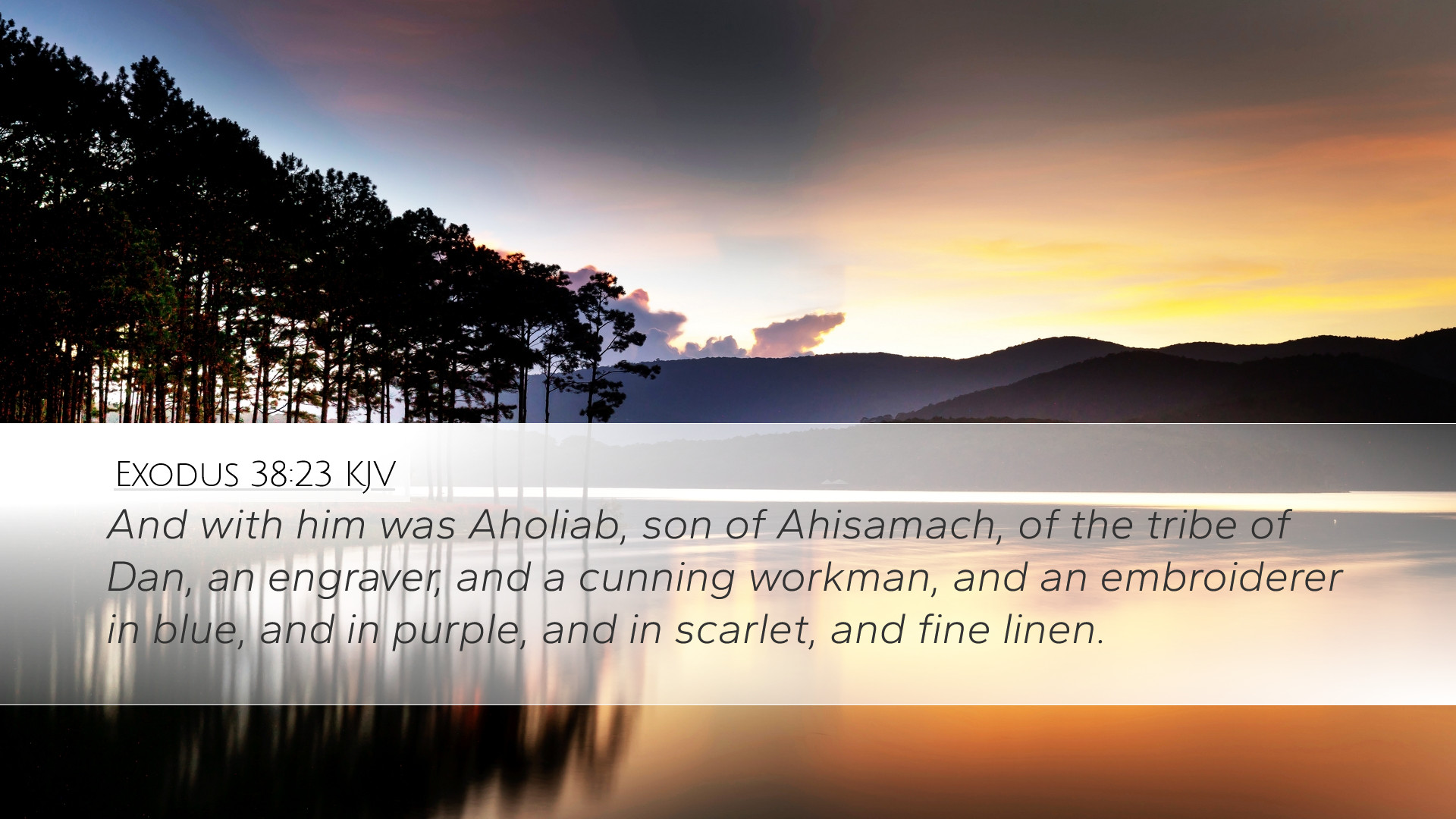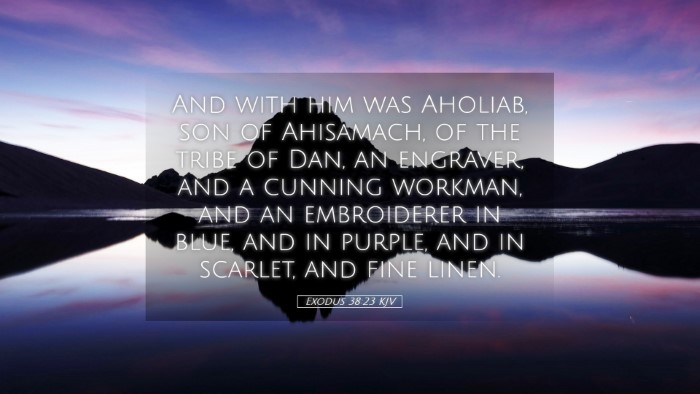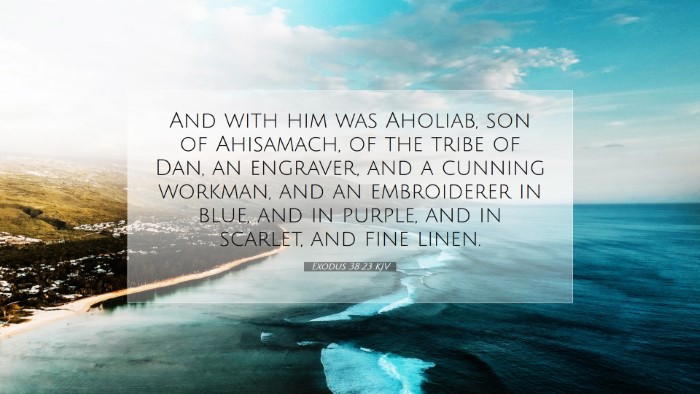Exodus 38:23 - Commentary and Insights
Exodus 38:23 states: "And with him was Aholiab, the son of Ahisamach, of the tribe of Dan, an engraver, and a cunning workman, and an weaver of blue, and purple, and scarlet, and fine linen." This verse speaks to the significance of the individuals involved in the craftsmanship of the Tabernacle, illustrating not only their skills but also God's provision of talent for the divine purpose.
Context and Background
In the broader narrative of Exodus, this verse falls within the description of the construction of the Tabernacle, a mobile sanctuary for the Israelites. The Tabernacle was central to Israel’s worship and a manifestation of God's presence among His people. The inclusion of Aholiab, denoting the skilled artisans, signifies the importance of craftsmanship in worship.
Exegetical Analysis
- Aholiab's Role: Aholiab serves as a key figure in the assembly of the Tabernacle. Commentators like Matthew Henry emphasize the divine appointment of artisans, suggesting that their abilities were endowed by God to fulfill the sacred task. The mention of Aholiab alongside Bezalel highlights the collaborative efforts necessary for such a monumental project.
- The Tribe of Dan: Aholiab’s lineage from the tribe of Dan indicates a diverse participation in the construction, which underscores the unity of the tribes in fulfilling God’s commands. Albert Barnes notes the significance of having representation from various tribes, promoting involvement across the community.
- Skills and Craftsmanship: The description of Aholiab as an "engraver" and "cunning workman" points to the necessity of skilled labor in sacred endeavors. Adam Clarke highlights that the meticulous craftsmanship reflects the glory of God. The creativity infused into the artifacts of worship honors the sacred spaces and objects dedicated to God.
Theological Implications
- God's Provision of Talent: This verse affirms the doctrine that God equips those He calls. The presence of skilled artisans reveals God’s intention to ensure that all aspects of worship, from the leadership to labor, are executed in excellence. Matthew Henry articulates this idea, noting that every talent is a gift from God and is crucial for the fulfillment of His plans.
- The Community of Believers: Aholiab’s contribution symbolizes the collective effort required within the community of faith. Albert Barnes expresses the significance of teamwork in the body of Christ, as each member plays a vital role in achieving God’s purposes.
- Worship Through Skill: The emphasis on skill in crafting the Tabernacle indicates that each act of service is a form of worship. Adam Clarke argues that every skillful act done in obedience to God can become an act of worship, reaffirming the sacredness of work.
Practical Applications
- Embrace Your Gifts: Believers are encouraged to recognize and utilize their God-given talents. Just as Aholiab used his skills for divine purposes, so too should Christians seek to identify their gifts and serve the community of faith.
- Collective Participation: True worship involves the collective body of Christ working together. The church thrives when its members contribute their unique abilities towards common goals, just as the tribes of Israel came together for the construction of the Tabernacle.
- Excellence in Service: The quality of work matters in our worship. Aholiab’s example encourages believers to pursue excellence in their tasks, be it in ministry, daily work, or service, viewing these as acts elevated to the sacred.
Conclusion
Exodus 38:23 serves as a reminder of the importance of skilled laborers in the worship of God and the collaborative spirit required in the fulfillment of divine mandates. By studying the lives and contributions of individuals like Aholiab, we can glean crucial lessons about commitment, excellence, and the community in the Church today.


